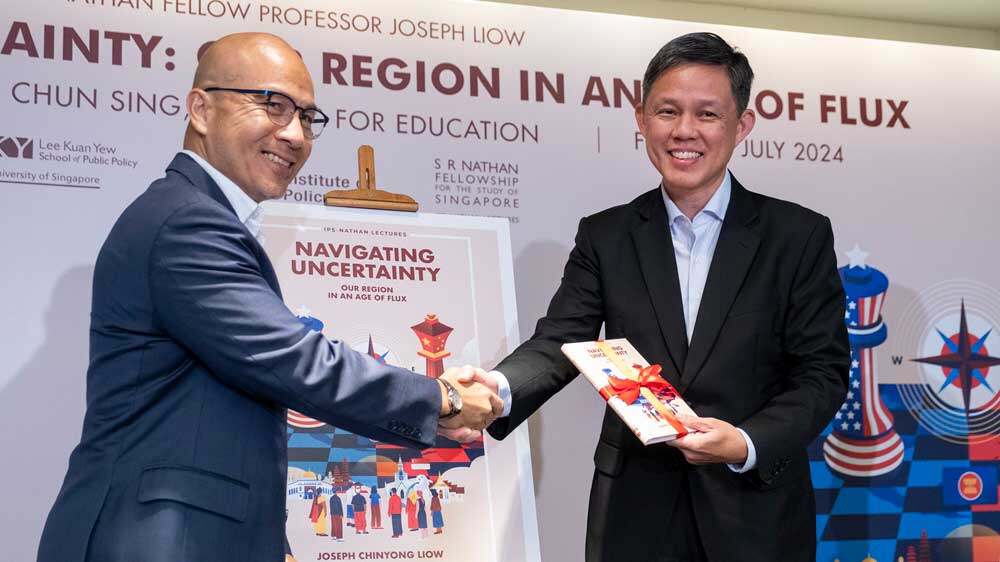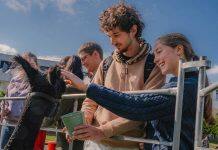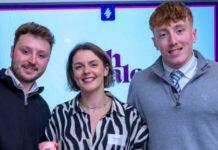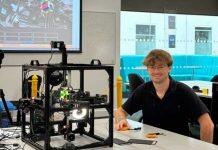

What are some external challenges and uncertainties Singapore faces today, such as the power dynamics between the United States and China, and how can the nation not just survive but thrive under these fluctuating conditions?
Understanding these uncertainties and the paradigms through which they are analysed is crucial for policymakers and the people of the 21st century, says NTU Singapore’s Professor Joseph Liow, Dean of the College of Humanities, Arts, and Social Sciences (CoHASS).
These insights were shared with the audience at the launch of his new book, “Navigating Uncertainty: Our Region in an Age of Flux,” a collection of three Institute of Policy Studies lectures delivered by Prof Liow as the 13th S R Nathan Fellow from October to November 2023.
The attendees received a signed copy of the book, which also includes highlights from Prof Liow’s interactions with the audience during his lectures. It provides a comprehensive look at the drivers of uncertainty in Singapore’s external environment and reflects on how Singapore can thrive amidst these challenges.
Prof Liow hopes that his latest book will shed some light on the changing global order that is being heavily contested today and how the Southeast Asia region, which is relatively stable, secure and prosperous, will be affected.
“As a small city-state with one of the most open economies in the world, the prosperity and progress that Singapore enjoyed in recent decades was due in no small part to the existence of a very conducive international environment. That environment is now changing in very fundamental ways,” Prof Liow said.
“Globalisation is being challenged by the emergence of populism and nationalism, open trade is now confronted by the rise of protectionism, great power cooperation has been replaced by competition, and fault lines of identity and religion are resurfacing with grave and far-reaching consequences. In order to survive and thrive under these new global conditions, it is imperative for us that we sharpen our understanding of these new drivers of international affairs.”
The book launch held on 5 July was organised by the Institute of Policy Studies at the National University of Singapore and was attended by Minister for Education Chan Chun Sing.
In his speech, Mr Chan said that he hopes the book will not just be a scholarly contribution, but one which will “challenge us – policymakers, researchers, corporations, and citizens – to envision a future Singapore that not only navigates uncertainty but a future where Singapore will continue to defy the odds of history”.
He added that he particularly liked one point that Prof Liow wrote in his book, “instead of asking ourselves, “Which side do we choose?” or “Who do we choose?”, the more important question is to ask ourselves, “How do we make others choose us?”
Mr Chan also shared his hope that the book will reach beyond academia to the wider public, igniting discussions and helping people better understand the complex global issues we are collectively facing.
Prof Liow’s book is on sale online on the World Scientific website and on Amazon.







































